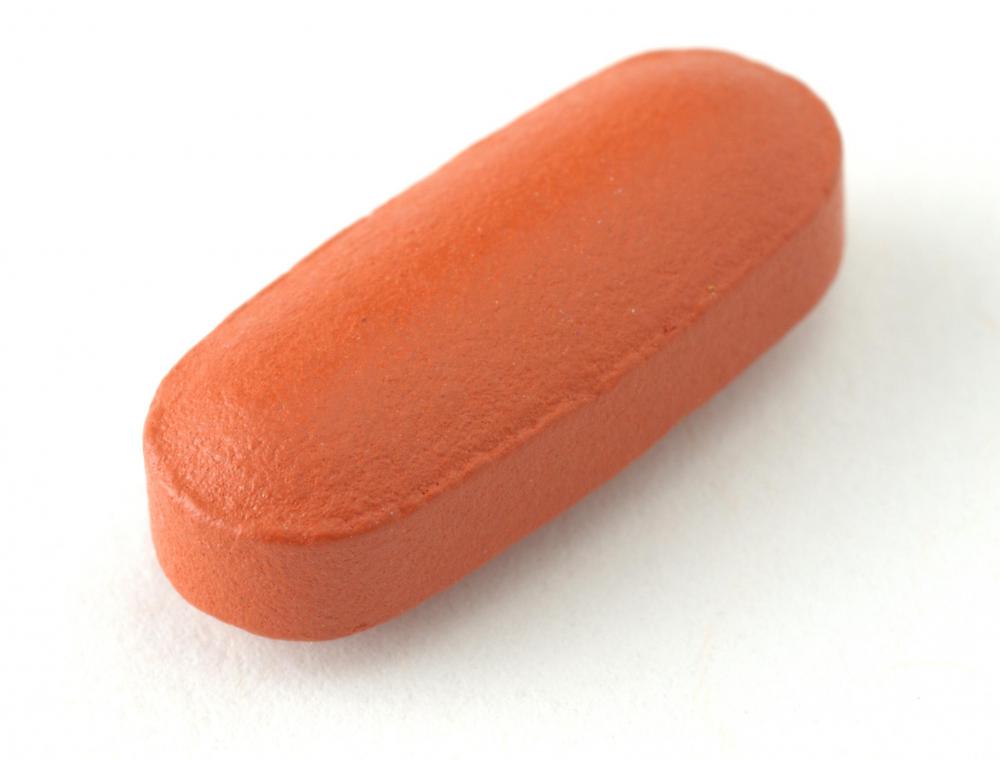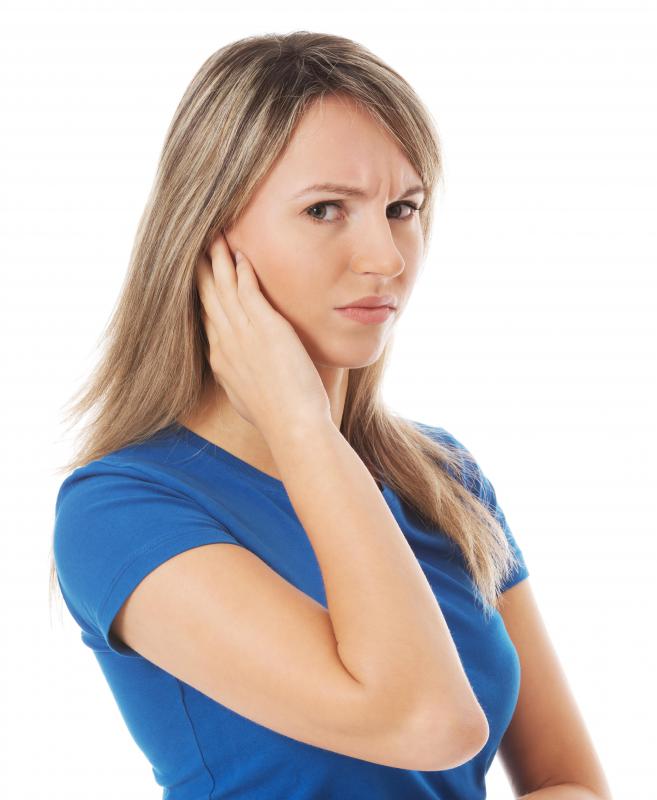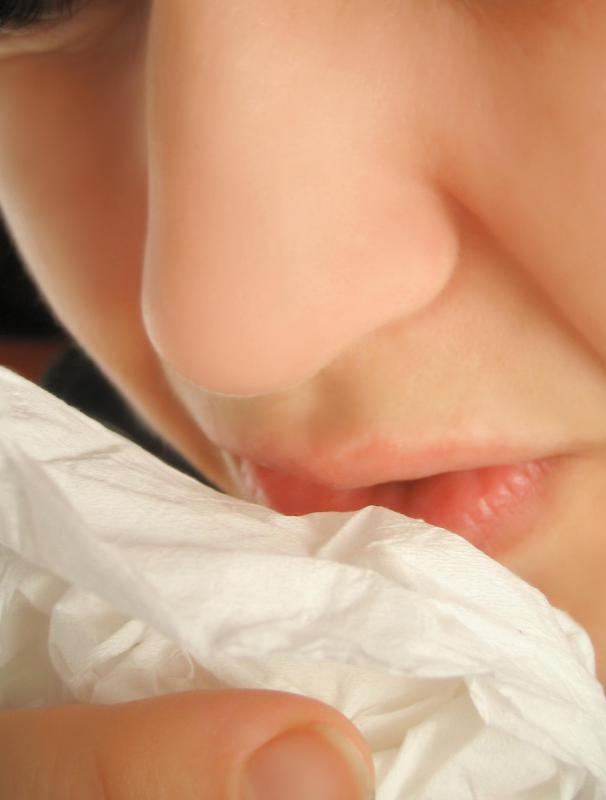At TheHealthBoard, we're committed to delivering accurate, trustworthy information. Our expert-authored content is rigorously fact-checked and sourced from credible authorities. Discover how we uphold the highest standards in providing you with reliable knowledge.
How do I Treat a Blocked Eustachian Tube?
A blocked Eustachian tube can be treated with decongestant medications, antibiotics, and, in extreme cases, surgery. Many times, when a bacterial or upper respiratory infection is present, fluid can build up in the ears and Eustachian tubes. Symptoms of a blocked tube include ear pain, decreased or muffled hearing, and ear popping. If the infection is caused by bacteria, antibiotics are generally prescribed to clear the infection.
A decongestant is a medication that often relieves symptoms of congestion, such as a stuffy nose and blocked Eustachian tubes. After the medication begins to work, the individual will often report that he hears a pop inside his ear, which indicates that the Eustachian tube has cleared. Although decongestants are often useful in treating this problem, they can cause significant side effects, such as palpitations, anxiety, and insomnia, so patients should check with a medical professional before taking them.

Sometimes, a Eustachian tube may feel blocked because of changes in barometric pressure. This can occur at high altitudes or when flying in an airplane. It is especially common during take-off and landing, but it can often be avoided by chewing gum. If gum is not available, yawing or swallowing can sometimes open the Eustachian tube. Barotrauma is a condition that causes pressure and severe pain in the ears, in addition to blocked tubes.

Ear infections are common in children, and they frequently result in earache and blocked Eustachian tubes. Fluid in the ear can cause this blockage and is sometimes resistant to antibiotics and home remedies. In these circumstances, a surgical procedure where tiny tubes are inserted into the ear to drain the fluid is sometimes useful in relieving symptoms. This treatment is not always successful, however, and sometimes needs to be repeated.

Occasionally, the Eustachian tubes will clear on their own without any treatments or remedies. This is especially true when the blockage is caused by getting water in the ears from swimming or showering. If, however, water remains in the ear for a prolonged period of time, bacteria can grow, causing an infection.
Ear infections that are caused by viruses cannot be treated with antibiotics. In these cases, the infection typically needs to run its course. Treatment for blocked tubes under these circumstances includes taking pain relievers, such as ibuprofen or acetaminophen, and instilling prescription ear drops that can help relieve pain and pressure.
AS FEATURED ON:
AS FEATURED ON:


















Discussion Comments
Yes, rburow, but, babies do not understand how to yawn or swallow on command. Parent's of very small children might offer a sippy cup or bottle, in the event of "ear popping" at high altitudes.
However, propping the bottle in the baby's mouth while he is laying down, is a real no-no. This practice actually encourages ear infections and bacteria to grow in the inner ear, which is far worse than popping of the ears.
By the way, babies can be given Motrin, or Ibuprofen to relieve discomfort. Talk with your pediatrician or nurse practitioner first.
With recent concerns over acetaminophen, parents of young children should take extra precaution with acetaminophen dosage, when attempting to alleviate the child's discomfort from a blocked eustachian tube. Talk with the physician or nurse practitioner to learn the specific dosage amount that is safe for your child's age and weight.
If the child is complaining of popping in the ear-a good yawn or swallow might clear the discomfort, without the use of pain medication.
Eustachian tube blockage in babies is the absolute worse. A new parent may not recognize the symptoms; incessant crying and pulling on the ear are signs that a child's eustachian tubes may be blocked or they could be ear infection symptoms. Parent's who fear their child has an inner ear infection, or a blocked eustachian tube should ask the child's pediatrician about a remedy.
Post your comments